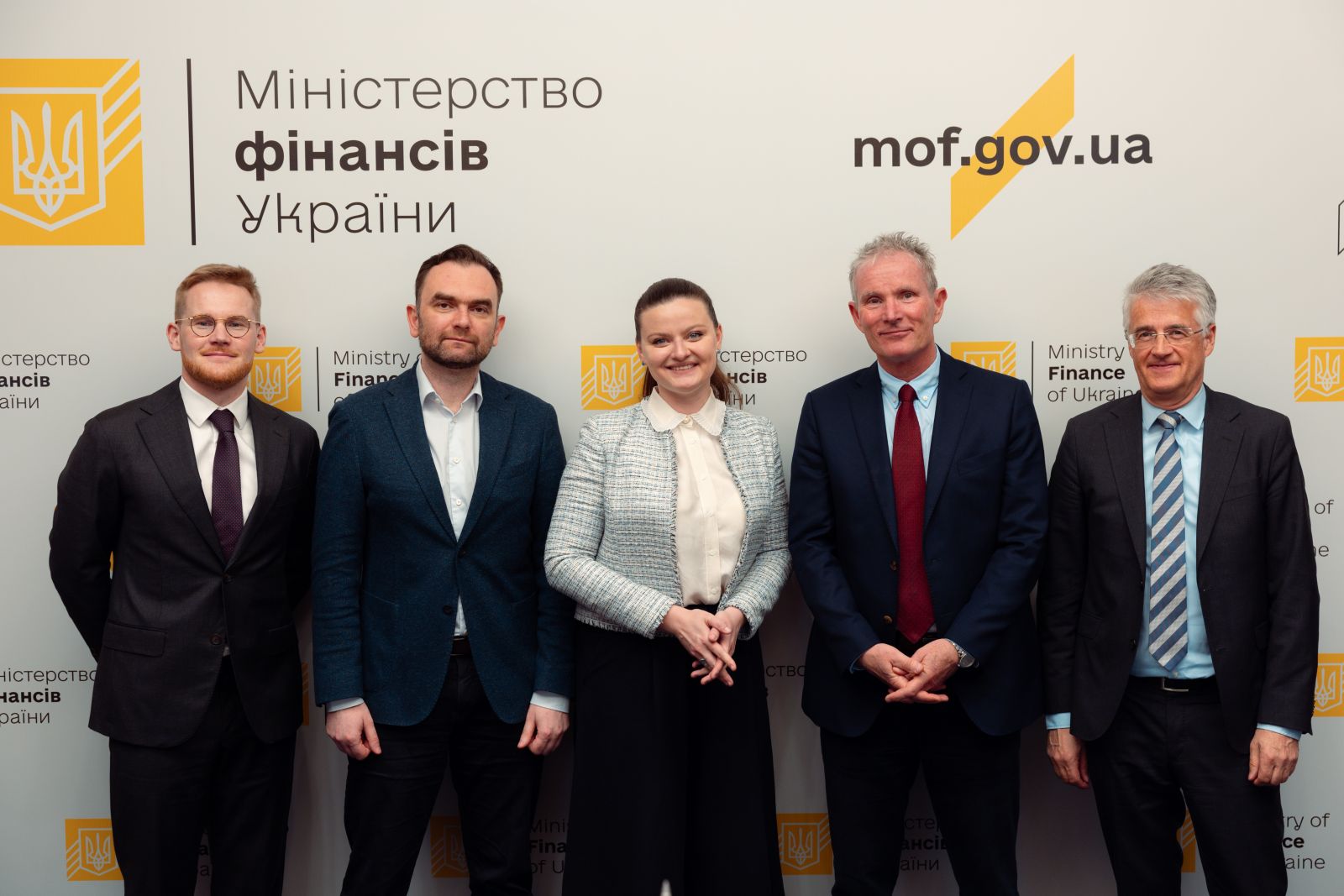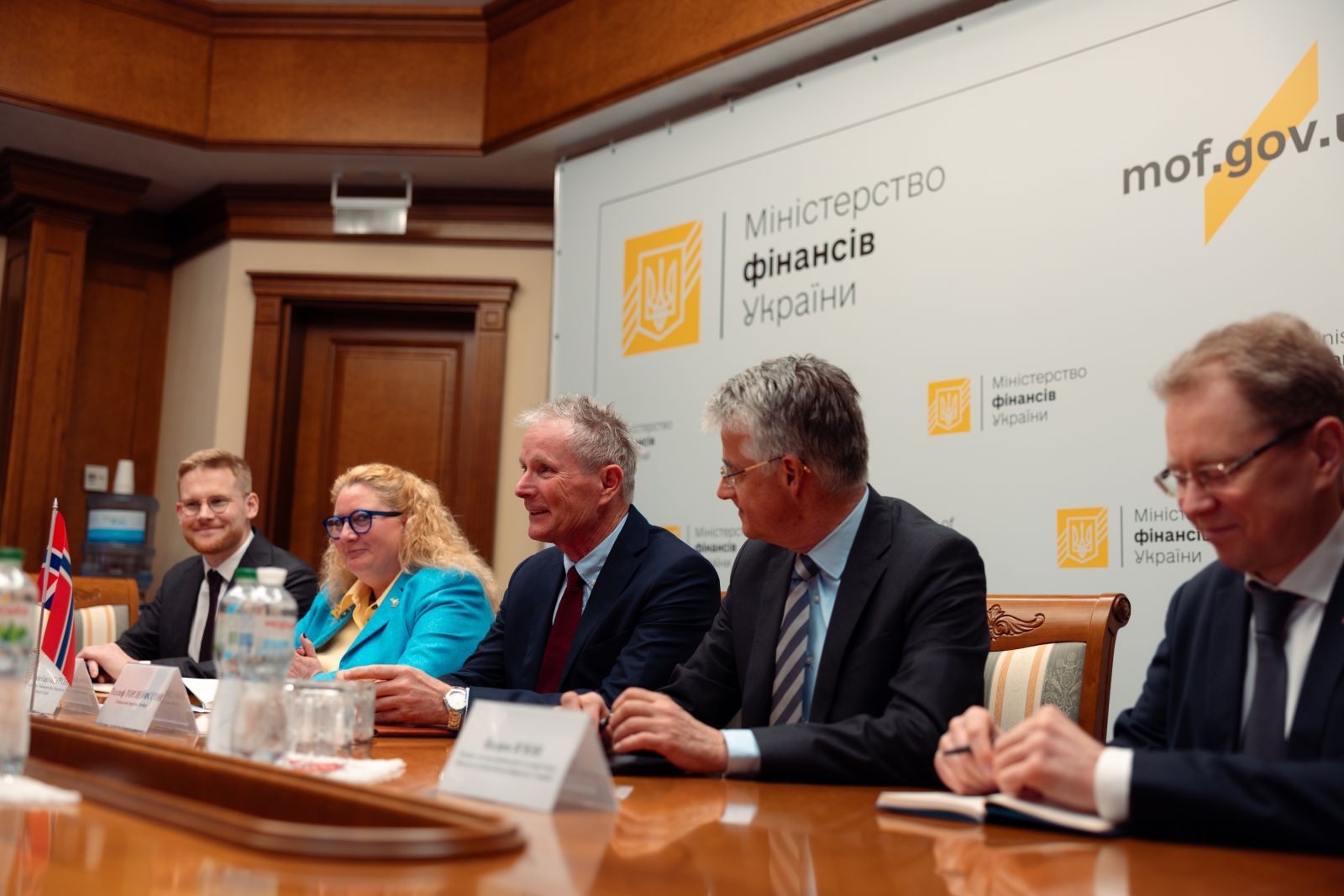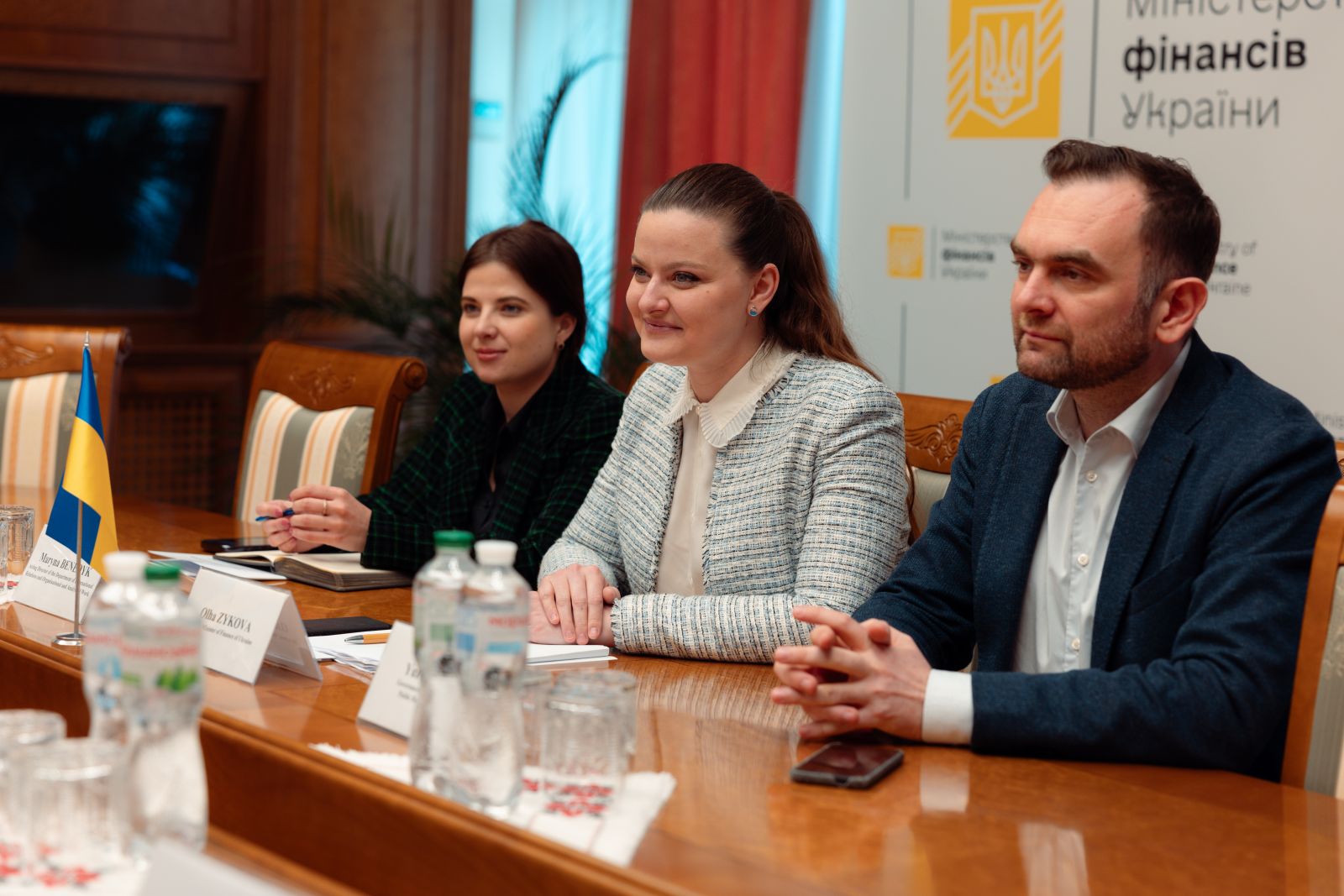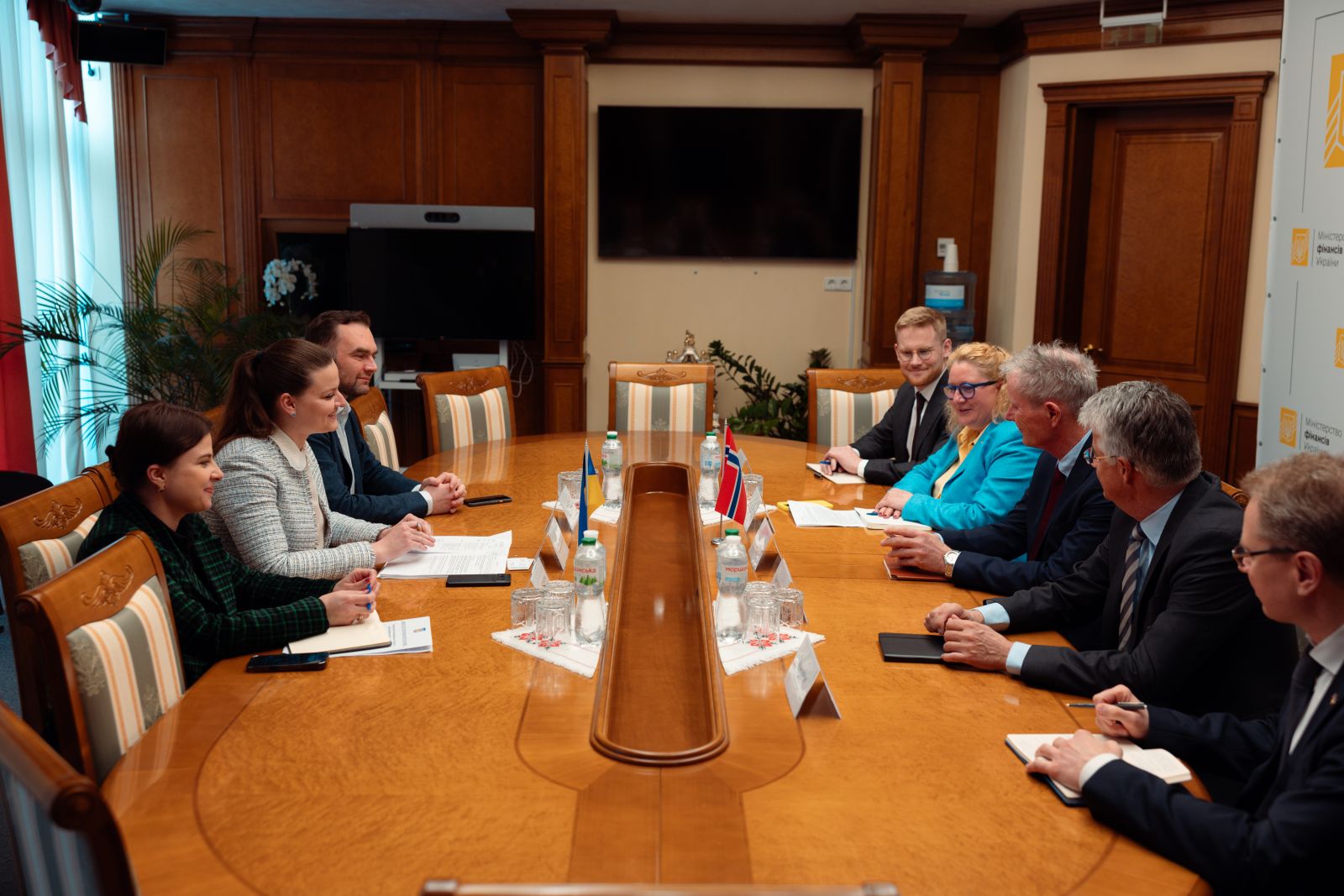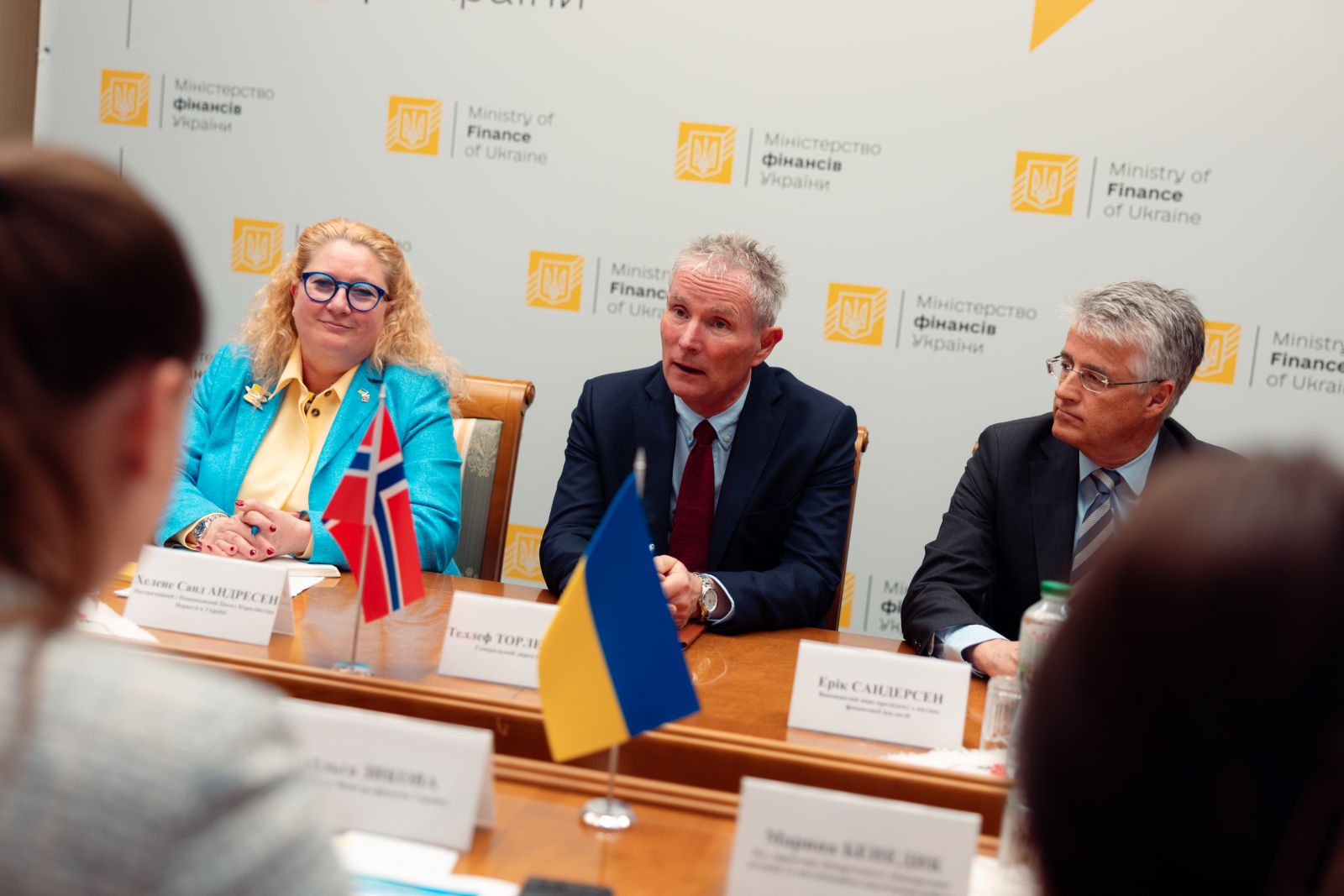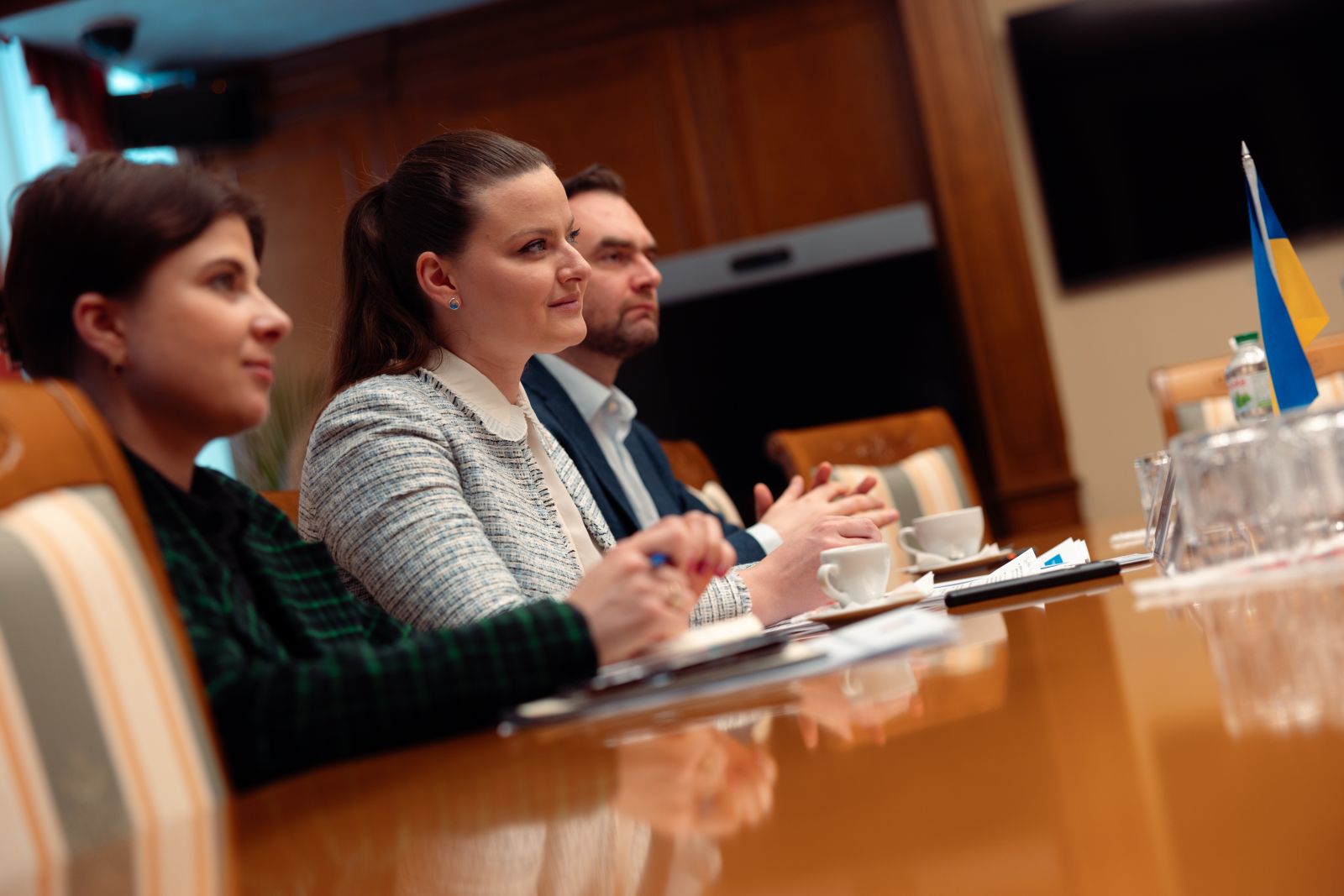The Ministry of Finance Leadership met with the Norwegian Investment Fund Norfund to discuss Ukraine’s Recovery
Deputy Minister of Finance of Ukraine Olga Zykova and Government Commissioner for Public Debt Management Yuriy Butsa held a working meeting with the leadership of the Norwegian Investment Fund Norfund, including the Fund’s CEO Tellef Thorleifsson, Executive Vice President for Financial Inclusion Erik Sandersen, and Senior Vice President for Ukraine Fund Simen Berger Øby.
The meeting was also attended by the Ambassador of Norway to Ukraine Helene Sand Andersen.
The Norwegian Investment Fund Norfund has recently begun operating in Ukraine, is currently building its team, and exploring potential investment opportunities. The Norwegian Government has allocated around NOK 250 million for Norfund’s investments in Ukraine.
The Norwegian Government has authorized Norfund to invest in Ukraine through the Nansen Support Programme, which is designed to mitigate risks for companies investing in Ukraine, including Norwegian businesses.
The Fund is particularly interested in supporting the growth of Ukraine’s private sector, creating jobs and enhancing economic resilience - including in areas affected by russian military aggression - financing renewable energy projects to strengthen Ukraine’s energy independence, and investing in export-oriented manufacturing, agriculture, and the banking sector, as well as Ukraine’s overall recovery, including infrastructure restoration.
“I’m pleased to welcome the Norfund team to Kyiv and commend your willingness to invest in Ukraine’s recovery. This is truly a very right moment for investment in Ukraine—both from a fiscal and an economic perspective. Despite the war, last year we recorded real GDP growth of 2.9%, and while inflation remains high, we expect it to decline to 9.5% by year-end. We have strong support from our international partners to maintain macroeconomic stability. But as long as the full-scale war continues, all of Ukraine’s internal resources are directed toward financing the security and defense sector. That’s why the Government of Ukraine is actively cooperating with investment funds to secure the tools necessary to implement recovery and reconstruction projects,” said Olga Zykova.
According to the Deputy Minister, engaging the private sector is critical to Ukraine’s recovery and economic growth.
“To support this, around USD 660 million has been allocated from the State Budget. However, according to the Fourth Rapid Damage and Needs Assessment (RDNA4), the Government needs an additional USD 7 billion to ensure private sector growth,” Zykova noted.
She added that key private sector support programs include grant schemes for SMEs and the processing industry, with a focus on microbusinesses and export-oriented enterprises. These initiatives are aimed at helping businesses innovate, scale up, and access both domestic and international markets.
One major support program for the private sector is the “5-7-9” initiative under the Business Development Fund (BDF), which provides interest rate compensation to expand SME access to finance. At the same time, the Government is working to ensure war risk insurance for businesses. Some insurance products have already been launched with the support of the EBRD and DFC.
Zykova also highlighted the importance of public investment management reform for attracting investment. This reform will enable the Government to prioritize investment projects that meet quality and environmental standards, ensuring effective mobilization of public and private resources.
The parties also discussed the importance of Ukraine’s recovery and reconstruction in the wake of damage caused by russian aggression.
“As of December 31, 2024, Ukraine’s ten-year recovery and reconstruction needs are estimated at nearly USD 524 billion. In 2025 alone, the need for priority recovery stands at USD 17.3 billion, of which USD 7.4 billion has already been secured through the state budget and donor support,” Zykova emphasized.
She added that priority areas for fast recovery financing include housing, energy, social and critical infrastructure, transport, social protection, and demining.
Recovery of the energy infrastructure is one of the Government of Ukraine’s top five reconstruction priorities for 2025 and the coming decade. In 2024, the Government approved the National Renewable Energy Action Plan until 2030, along with its implementation roadmap. The Action Plan aligns with European norms and standards and aims to increase the share of green energy in final consumption to 27% by 2030.
To support the implementation of energy efficiency and energy-saving measures in buildings, the State Institution Energy Efficiency Fund was established. To ensure continued financing for energy efficiency projects and the restoration of facilities damaged by russian aggression, it will be necessary to replenish the Fund’s authorized capital by approximately EUR 5 million in 2025.
Additional information
Norway is a strategically important partner and donor of military, humanitarian, and financial support to Ukraine. Since the beginning of the full-scale invasion alone, the Norwegian government has provided Ukraine with over half a billion dollars in grant-based financial assistance.
Norway is also the largest contributor to the Ukraine Relief, Recovery, Reconstruction and Reform Trust Fund (URTF) of the World Bank, having committed over USD 633 million out of the total USD 1.92 billion. The projects financed by URTF aim to support the energy, healthcare, agriculture sectors, and broader recovery efforts.
